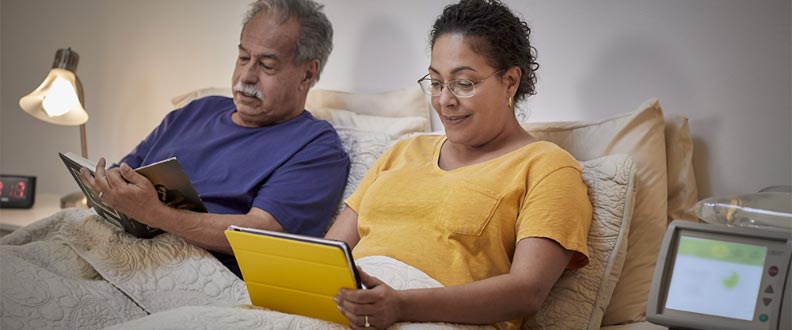
What Is Home Hemodialysis

How does home hemodialysis work?
During home hemodialysis, your blood is filtered outside of your body through a dialyzer or “artificial kidney” to remove unwanted waste, toxins and excess fluids. Hemodialysis uses a solution called dialysate to remove unwanted substances from your blood. Clean, chemically balanced blood is then returned to your body.
What are the benefits of home hemodialysis?
- You may be able to do at-home HD on your own, without assistance.
- You have the comfort of being home during treatment—while having access to an on-call nurse over the phone.
- If prescribed by your doctor, you can stay on your machine longer or more frequently, which can help you feel better—you may have more energy and less nausea and cramping.
- Along with your doctor or nurse's advice, you can choose your time for treatments, so you have more flexibility for work or school or other social activities.
- You don't need to leave home for treatment, which saves on travel time and transportation costs, plus alleviates weather-related travel worries.
- You or your care partner will put in your own needles, which some people prefer.
- You have more freedom with your diet if your doctor prescribes more frequent dialysis treatments.
What do you need to succeed at home hemodialysis?
- Anywhere from 4 to 6 weeks of training—along with your care partner (a family member or friend), if you need one.
- If you have a care partner, he or she needs to be dependable—to commit to either participating in your home hemodialysis treatments or staying with you to monitor them.
- You or your care partner must be willing to set up for treatments and clean up afterward.
- Before you begin, check with your health insurance provider—or your social worker—so you know whether more frequent at-home hemodialysis treatments will be covered.
- Your water and electrical systems need to be checked in case they need to be upgraded or modified.
- Space that’s set aside in your home to store supplies and equipment.
Choosing whether to partner up for home HD
You can do home hemodialysis solo or with a care partner, depending on what you and your doctor decide is best for you. If you decide to do treatment with a care partner, you'll need someone who's willing—and committed—to train with you and be with you during each home dialysis treatment.

e-newsletter
Get the latest news in kidney care and delicious kidney-friendly recipes, plus inspiring stories from people living with kidney disease.
